Categories
- animatronics (12)
- apple (11)
- arduino (179)
- art (41)
- articles (121)
- artificial intelligence (11)
- automation (421)
- avr (205)
- bitcoin (3)
- breadboard (9)
- cameras (57)
- cars (26)
- cell phones (28)
- clothing mods (21)
- console mods (26)
- dangerous (94)
- desktop mods (24)
- embedded (5)
- flying things (54)
- fpga (22)
- gaming creations (108)
- interface (225)
- internet (17)
- laptop mods (6)
- lasers (22)
- linux (7)
- magnetic (3)
- medical (12)
- microcontrollers (51)
- misc projects (152)
- msp (12)
- music (124)
- pic (90)
- projects (23)
- pyroedu (76)
- raspberry pi (26)
- robots (312)
- security (36)
- sensors (307)
- software (200)
- solar (19)
- stamp (9)
- tools (149)
- tutorials (98)
- Uncategorized (45)
- usb (44)
- wireless (256)
Sponsors

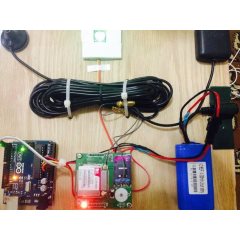
Posted March 19, 2016 by Chris
"The HPA (Heart Pulse Alarm) is a portable device that measures the pulse rate and the body temperature. If the device receives an up normal heart pulse, it will send a message to paramedics to act quickly."
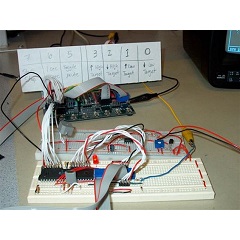
Posted October 11, 2015 by Chris
"At the highest level, the design of our project centers around an acquisition circuit, data processing in two MCUs, and the output on a TV screen. The first part of the stethoscope is the acquisition unit, which consists of an actual stethoscope mated with a microphone, and an amplifier circuit. The microphone captures the audible signal from the body that is acoustically amplified by the stethoscope."
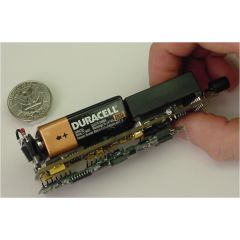
Posted July 20, 2015 by Chris
"Wearable health monitoring systems integrated into a telemedicine system are novel information technology that will be able to support early detection of abnormal conditions and prevention of its serious consequences. Many patients can benefit from continuous ambulatory monitoring as a part of a diagnostic procedure, optimal maintenance of a chronic condition or during supervised recovery from an acute event or surgical procedure."
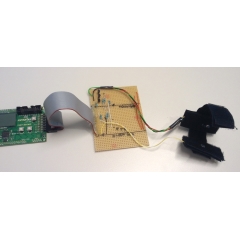
Posted January 27, 2015 by Chris
"The theory behind a pulse oximeter is based around a simple principle: Shine red light and an infrared light through a blood-rich part of the body and measure the difference in absorbed light with a photo sensor. Hemoglobin absorbs red and infrared light differently depending on the oxygen saturation level. Based on this, it is possible to calculate the ratio of oxygenated vs. de-oxygenated hemoglobin."
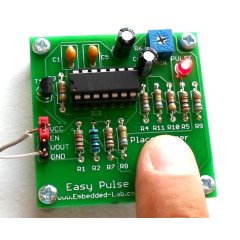
Posted March 11, 2013 by Chris
“Today, I am going to talk about a revised version of the same project but with all the components specified this time. The new version uses the TCRT1000 reflective optical sensor for photoplethysmography. The use of TCRT100 simplifies the build process of the sensor part of the project as both the infrared light emitter diode and the detector are arranged side by side in a leaded package, thus blocking the surrounding ambient light, which could otherwise affect the sensor performance.”
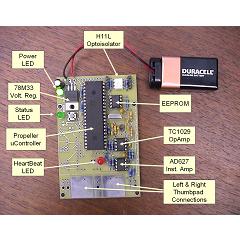
Posted July 8, 2012 by Chris
“Dubbed the PropEKG, the design uses an AD627 instrument amplifier and TC1029 dual op amp. Data is processed by the Propeller and relayed to a Windows PC using a Parallax PropPlug.”
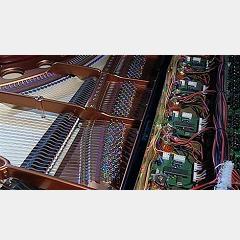
Posted August 28, 2011 by Chris
This project is pretty crazy, some bored people in Austria made a piano that speaks english! It sounds hard to believe, but check out the demo video in the article and prepare to be impressed. There are also a lot of technical details for how it was built (PIC powered) and the software that drives the system.

Posted August 27, 2011 by Chris
Taking this weekend a little easier, here’s a project that shows you how to add some electronics to a stethoscope to amplify the sound of a heart beat. The article includes the hardware schematic, parts list, description and assembly instructions.
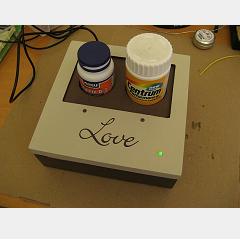
Posted August 22, 2011 by Chris
This article demonstrates another way to add some automation to our lives through a device that reminds you when you need to take your medicine. The intelligent part of this project is powered by an arduino / prototino and the rest done through timing and output to an LED that lets you know when the time is up.
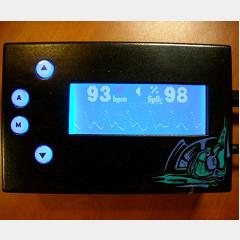
Posted January 8, 2011 by Chris
This is a cool little gadget that measures both your heart rate in beats per minute as well as the oxygen saturation of your blood. There aren’t any needles involed, everything is measured externally through the skin like at hospitals. Take a look at the project write-up to see how it was built.






